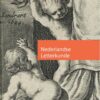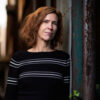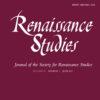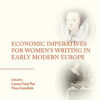
De vraag ‘wie betaalt voor de kunsten?’ is eeuwig actueel
This paper explores how an article by Marita Mathijsen on literary subsidies in the nineteenth century (1996, Nederlandse letterkunde) has served as a prelude to later research on post-romantic private literary patronage in The Netherlands on the one hand, and Dutch government policy on the other. It provides an overview of research carried out by Dutch…
Lees meer
Scriptie: De symbolische bankier
This thesis was written with the aim of mapping out the functioning of the Cultuurfonds donor circles. While previous studies focus on the patronage relationships between donors and artists, this research focuses on collective patronage and the mediating role of the Cultuurfonds. The results of this research show that the Cultuurfonds fulfils various mediating roles, including…
Lees meer
Van maker naar mecenas (en weer terug): over giftuitwisseling in de kunsten
Toen de schrijver Gerard Reve begin jaren zestig besloot dat hij klaar was voor een weldoener, of, zoals hij het noemde, voor een ‘beschermer’, hoopte hij naar eigen zeggen op “een haven waarin ik mijn levensschip zeilklaar kan maken, van waaruit ik zeewaardig kan uitvaren, en waarheen ik bij storm en ontij kan terugkeren.” Het…
Lees meer
Beeld oratie: Van maker naar mecenas (en weer terug)
Op 19 januari 2021 hield prof. dr. Helleke van den Braber haar oratie als hoogleraar Mecenaatstudies aan de faculteit Geesteswetenschappen. In haar rede zocht zij een antwoord op de schijnbaar simpele vraag wat het precies is dat in de relatie tussen kunstenaars en weldoeners over tafel gaat. Wat geven makers hun mecenas – en wat…
Lees meer
Hoogleraar mecenaatstudies Helleke van den Braber: ‘Makers en gevers moeten in de benen komen’
Hoogleraar mecenaatstudies Helleke van den Braber weet alles over de relatie tussen kunstenaars en gevers. Die wringt weleens. Want wat als een filantroop zelf wil drummen in de band die hij met zijn geld overeind helpt?
Lees meer
Leve het Geven: Een onderzoek naar particulier geven aan creatieve professionals
In 2020 voerden Stichting voordekunst en Van Dooren Advies in samenspraak met prof. dr. Helleke van den Braber en het Prins Bernhard Cultuurfonds en in opdracht van Platform ACCT een sectorbreed onderzoek uit naar de vraag: Hoe kan het particulier geven aan individuele makers in Nederland geoptimaliseerd worden? Onder particulier geven wordt verstaan: geld van…
Lees meer
Een ongehoord geluid
De saxofoonklas van het Koninklijk Conservatorium Brussel tussen 1867 en 1904 Als verlicht despoot en fervent muziekliefhebber wilde koning Leopold I van het nieuwe koninkrijk België een culturele mogendheid maken. Vrijwel meteen na de Belgische Revolutie werd met zijn steun onder meer het Koninklijk Conservatorium van Brussel opgericht. François-Joseph Fétis, door Leopold benoemd tot eerste…
Lees meer
Economic advancement and reputation strategies: Seventeenth‐century Dutch women writing for profit
This essay examines how economic circumstances and imperatives influenced strategies of self‐representation employed by women writing in the Dutch Republic. At the core of the analysis is the poetry of Maria Margaretha van Akerlaecken (1605–after 1662) and Katharina Lescailje (1649–1711). Economic advancement for literary authors in the Dutch Republic was defined by the marginality of…
Lees meer
Naar een diachrone blik op de verdiensten van Nederlandstalige auteurs
This article argues that it is both important and viable to develop a diachronic perspective on the profits of literary authors in the Low Countries. Up to now, conceptual and theoretical boundaries between different subdisciplines within Dutch literary studies have resulted in a compartmentalized, fragmentary narrative of the economic, social and symbolic profits of literary…
Lees meer
Economic Imperatives for Women’s Writing in Early Modern Europe
Economic Imperatives for Women’s Writing in Early Modern Europe delves into the early modern history of women’s authorship and literary production in Europe taking a material turn. The case studies included in the volume represent women writers from various European countries and comparatively reflect the nuances of their participation in a burgeoning commercial market for authors…
Lees meer
